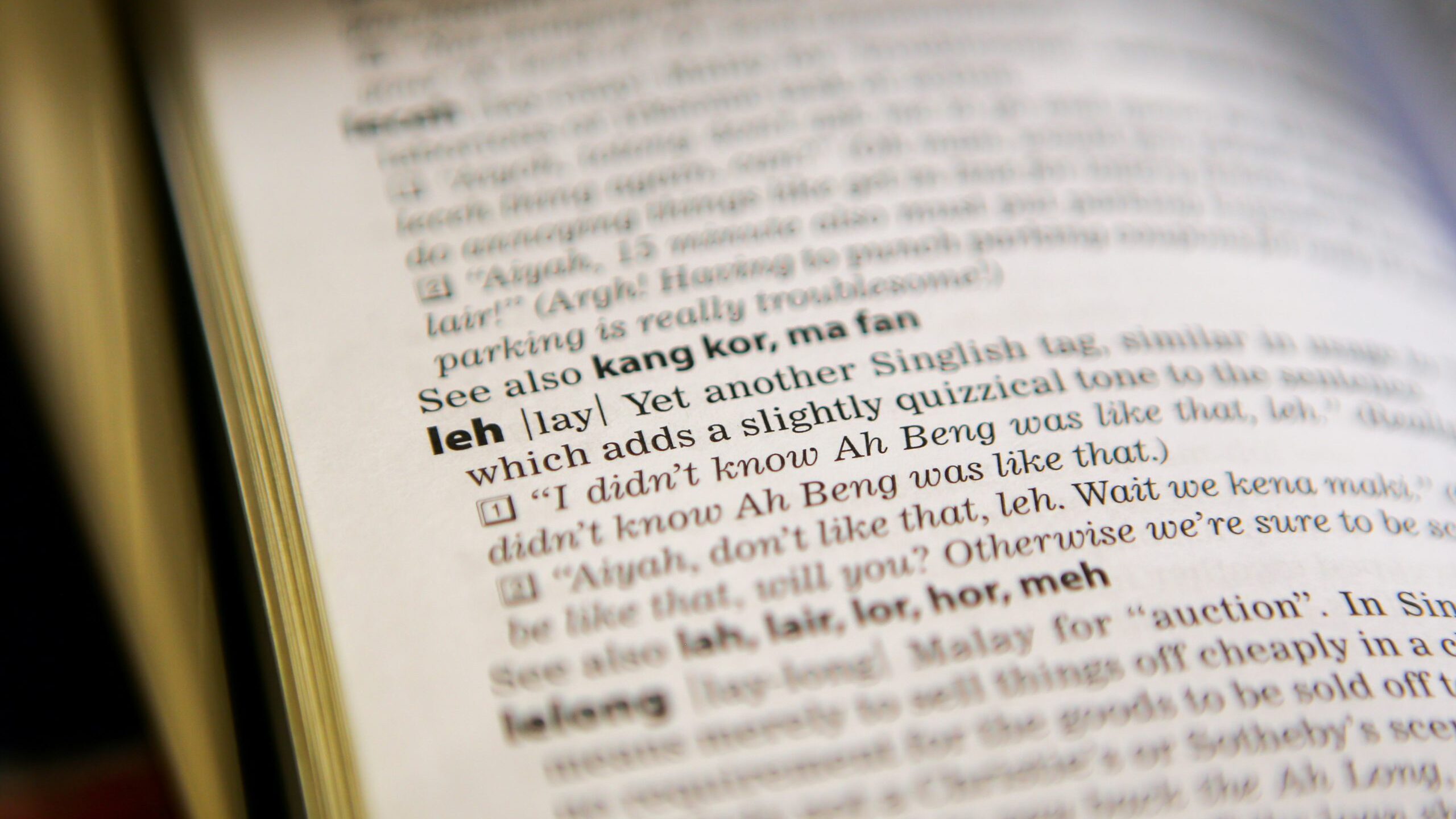Is it in Colloquial Singapore English: What variation can tell us about its conventions and development
April 28, 2024
The Speak Good English campaign, launched on 29 April 2000 by then-Prime Minister Goh Chok Tong, aimed to improve the English-speaking proficiencies of Singaporeans. This was due to a growing concern about the prevalence of Colloquial Singapore English (CSE), commonly known as ‘Singlish’, a variant of English that the government once saw as grammatically incorrect.
CSE has developed as a product of language contact in a multicultural society, growing to become a marker of the Singaporean identity. It has become one of the most prominent forms of post-colonial English and is studied as a World English. Associate Professor Mie Hiramoto (NUS English, Linguistics and Theatre Studies) studies some of the unique features of Colloquial Singapore English in “Is it in Colloquial Singapore English: What variation can tell us about its conventions and development” (English Today, 2022).
Hiramoto and other linguists look into features at the various language levels, such as phonetics, morphosyntax, semantics, and pragmatics. Specifically, they zero in on the use of the term, “is it”, modelling its usage through statistical studies. Through this analysis, they investigate how CSE users tended to use this term and how they constructed is it questions. The research identifies the different strategies and conventions invoked when CSE users form this kind of speech, and distinguishes the different patterns based on social factors like one’s age and their identification with their nationality.
Read the article here: https://doi.org/10.1017/S0266078422000141

